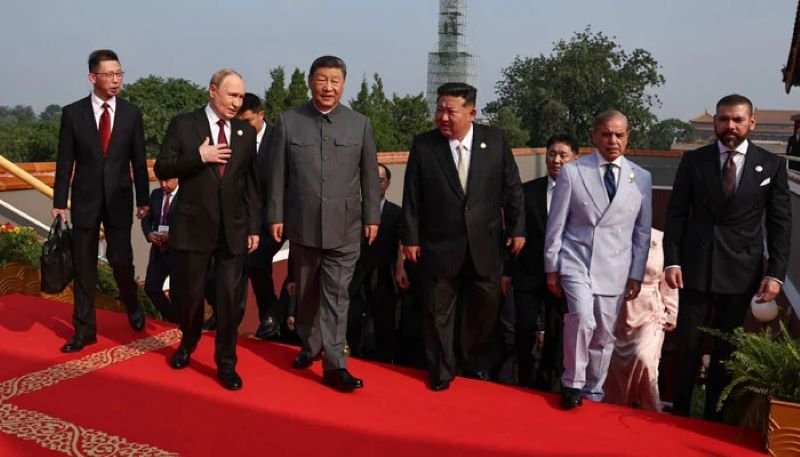Beijing (TDI): Beijing staged its largest-ever military parade on Wednesday, where President Xi Jinping declared that China had become “unstoppable” and urged the world to choose peace over conflict.
The event, marking 80 years since Japan’s defeat in World War II, carried heavy symbolism and was attended by high-profile allies, including Russian President Vladimir Putin and North Korea’s Kim Jong Un.
The celebration drew more than 50,000 people to Tiananmen Square. Xi, dressed in a Mao-style suit, reviewed the formations from an open-top limousine as missiles, tanks, drones, and newly developed weaponry rolled past. Fighter jets and helicopters thundered overhead, trailing banners before releasing a spectacle of 80,000 white doves and thousands of balloons.
In his speech, Xi framed the anniversary as a reminder of China’s resilience and its emergence as a global power. “Humanity today stands at a crossroads, between peace and war, dialogue and confrontation, cooperation or zero-sum rivalry,” he said. “The Chinese people will always stand firmly on the right side of history.”
Read More: Xi Lauds China-Russia Ties as Global Model
Xi welcomed over 20 foreign dignitaries, including Pakistan’s Prime Minister Shehbaz Sharif and Indonesian President Prabowo Subianto. In the viewing gallery, Xi was seated between Putin and Kim, frequently engaging them in conversation as formations of troops marched below.
Pakistan Congratulates China
President Asif Ali Zardari, in a message carried by state radio, congratulated Beijing on the occasion, describing September 3 as a solemn reminder of China’s wartime sacrifices. He praised the resilience and courage of the Chinese people, adding that Pakistan and China enjoy “time-tested, deep-rooted” ties founded on trust and shared aspirations for peace and development.
Read More: China, SCO Launch Green Industry Cooperation Platform in Tianjin
Observers are also watching for signs of deepening military cooperation between Beijing, Moscow, and Pyongyang. Russia and North Korea signed a defense pact in mid-2024, and speculation is growing about a similar arrangement with China. Such moves could significantly alter Asia’s security balance.



